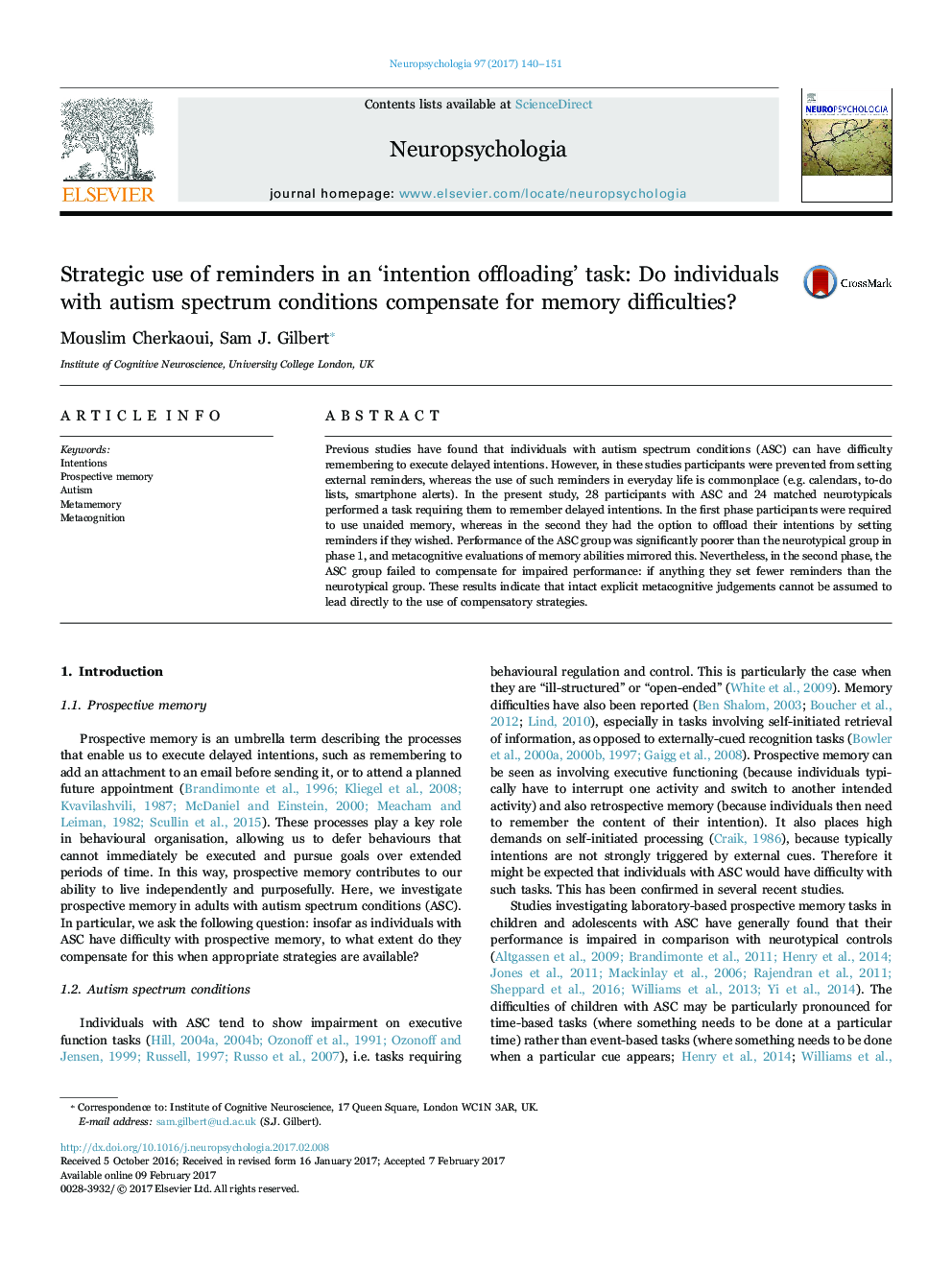| Article ID | Journal | Published Year | Pages | File Type |
|---|---|---|---|---|
| 5045355 | Neuropsychologia | 2017 | 12 Pages |
â¢Investigated a task where participants had to remember delayed intentions.â¢Individuals with autism spectrum conditions (ASC) performed worse than neurotypical.â¢This was true even when participants had the option to set external reminders.â¢Therefore individuals with ASC failed to compensate for impaired performance.â¢This was true even though metacognitive evaluations of performance were intact.
Previous studies have found that individuals with autism spectrum conditions (ASC) can have difficulty remembering to execute delayed intentions. However, in these studies participants were prevented from setting external reminders, whereas the use of such reminders in everyday life is commonplace (e.g. calendars, to-do lists, smartphone alerts). In the present study, 28 participants with ASC and 24 matched neurotypicals performed a task requiring them to remember delayed intentions. In the first phase participants were required to use unaided memory, whereas in the second they had the option to offload their intentions by setting reminders if they wished. Performance of the ASC group was significantly poorer than the neurotypical group in phase 1, and metacognitive evaluations of memory abilities mirrored this. Nevertheless, in the second phase, the ASC group failed to compensate for impaired performance: if anything they set fewer reminders than the neurotypical group. These results indicate that intact explicit metacognitive judgements cannot be assumed to lead directly to the use of compensatory strategies.
